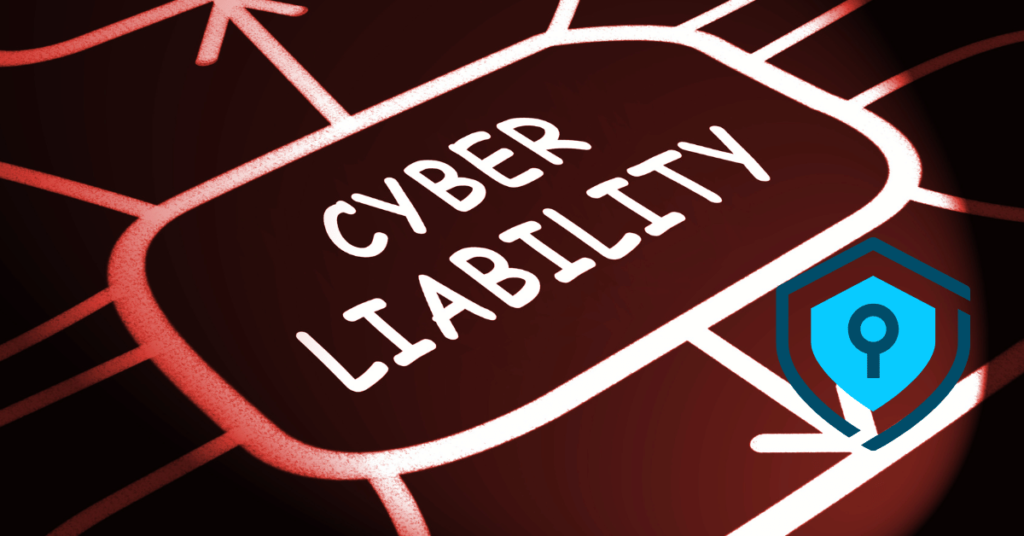As cyber threats grow more prevalent, small businesses are increasingly vulnerable to cyber attacks. Data breaches, ransomware attacks, and other cybersecurity risks can cause severe financial harm, especially for small businesses that may not have extensive resources for recovery. Cyber insurance provides a valuable safety net, offering financial protection and support in the event of a cyber incident. Fortunately, there are affordable cyber insurance options specifically designed for small businesses.
In this guide, we’ll cover what small business cyber insurance entails, affordable options available, and tips on selecting the right policy to protect your business without breaking the bank.
Why Small Businesses Need Cyber Insurance
Small businesses often face the misconception that they are less likely to be targeted by cybercriminals than large enterprises. In reality, small businesses are frequently targeted because they may lack the advanced security measures that larger corporations have in place. Some common cyber risks for small businesses include:
- Ransomware Attacks: Malicious software that locks your data until a ransom is paid.
- Phishing Scams: Fraudulent attempts to steal sensitive information, such as passwords or financial data.
- Data Breaches: Unauthorized access to sensitive business or customer information.
- Business Email Compromise (BEC): When attackers impersonate employees to steal funds or sensitive data.
Cyber insurance can help cover these financial losses, as well as costs related to legal fees, data recovery, and reputational management. For small businesses, having cyber insurance can be crucial to survival after an incident.
Key Coverage Options for Small Business Cyber Insurance
Cyber insurance policies can be customized to fit the specific needs of your business. Some essential coverage options include:
1. Data Breach Coverage
- Covers the costs of notifying affected customers, managing public relations, and providing credit monitoring for impacted clients.
- Helps small businesses manage data breach response without bearing the entire financial burden.
2. Business Interruption Insurance
- Compensates for lost income if your business operations are disrupted due to a cyber incident.
- Essential for businesses that rely on digital systems for day-to-day operations.
3. Cyber Extortion Coverage
- Provides financial support if your business is affected by ransomware or other types of cyber extortion.
- Covers costs associated with responding to the attack, including potential ransom payments (if allowed by policy).
4. Network Security and Privacy Liability
- Covers legal fees and settlements if a breach of customer data or business information results in lawsuits.
- This coverage is especially valuable for businesses that store sensitive client information.
5. Multimedia Liability Coverage
- Protects against claims arising from online content that leads to defamation, copyright infringement, or privacy violations.
- Useful for small businesses with a strong online presence or active marketing efforts.
Affordable Cyber Insurance Options for Small Businesses
Several insurers specialize in affordable cyber insurance options tailored to small businesses. Here are some providers that offer cost-effective solutions:
1. Hiscox
- Overview: Hiscox offers tailored cyber insurance policies for small businesses, focusing on essential coverage like data breach response and cyber extortion.
- Benefits: Flexible policies and competitive pricing, with coverage starting as low as $270 per year for basic cyber insurance.
- Ideal For: Small businesses with limited budgets that need essential cyber protection.
2. CNA
- Overview: CNA’s CyberPrep program is designed to meet the needs of small businesses, offering comprehensive first-party and third-party coverage.
- Benefits: Access to cybersecurity tools and resources, such as risk assessments and employee training programs, along with affordable rates.
- Ideal For: Businesses looking for well-rounded coverage and resources for improving their security posture.
3. Chubb Cyber Enterprise Risk Management
- Overview: Chubb provides scalable cyber insurance options tailored to small businesses, covering data breaches, cyber extortion, and business interruption.
- Benefits: High policy limits and comprehensive coverage, including assistance with compliance and risk management.
- Ideal For: Businesses needing extensive coverage with support for regulatory compliance.
4. Coalition
- Overview: Coalition offers cyber insurance combined with proactive cybersecurity services, including real-time monitoring and incident response support.
- Benefits: Affordable rates with additional security tools, starting at $200 per year for small businesses.
- Ideal For: Businesses that want ongoing cybersecurity support alongside insurance.
5. Travelers
- Overview: Travelers provides a range of cyber insurance policies, with options suited for small and mid-sized businesses.
- Benefits: Customizable coverage that includes data breach notification, legal defense, and regulatory fines.
- Ideal For: Businesses that need customizable plans that adapt as the business grows.
6. AXA XL
- Overview: AXA XL offers small business cyber insurance policies focused on privacy liability, network security, and data recovery.
- Benefits: Coverage that adapts to unique business needs, including support for handling regulatory investigations.
- Ideal For: Small businesses in regulated industries, such as healthcare and finance.
Tips for Choosing Affordable Cyber Insurance
To ensure your small business receives the right level of protection at an affordable cost, keep these tips in mind:
- Assess Your Cyber Risks: Evaluate the specific cyber risks your business faces, such as the type of data you handle or your reliance on digital systems. This will help you choose the appropriate level of coverage without overpaying.
- Consider Policy Limits and Deductibles: Policies with higher deductibles or lower limits often come with reduced premiums. Choose limits that cover the essentials while aligning with your budget.
- Focus on Core Coverage: Essential coverage areas like data breach response, business interruption, and cyber extortion can address the most significant financial risks for small businesses.
- Ask About Multi-Policy Discounts: Some insurers offer discounts if you bundle cyber insurance with other types of business insurance, such as general liability or professional liability coverage.
- Utilize Cybersecurity Tools: Some providers, like Coalition, offer proactive cybersecurity tools as part of their policy. Leveraging these resources can help prevent incidents, reducing the need to file claims and potentially keeping premiums low over time.
FAQs
How much does cyber insurance cost for small businesses?
Cyber insurance for small businesses typically costs between $200 and $1,000 per year, depending on factors like industry, coverage level, and business size.
Is cyber insurance worth it for small businesses?
Yes, cyber insurance can be invaluable for small businesses. The cost of a cyber incident can be significant, and insurance helps manage expenses like legal fees, data recovery, and loss of revenue.
Can I get coverage for ransomware attacks?
Many cyber insurance policies cover ransomware attacks under cyber extortion coverage. However, policies vary, so it’s important for you to confirm the specific terms with your insurer before getting the insurance.
Do small businesses need both first-party and third-party cyber insurance?
It depends on the nature of your business. First-party coverage is essential for direct losses, while third-party coverage is beneficial if your business holds client data or could be held liable for cyber incidents affecting others.
Are cybersecurity tools included in cyber insurance policies?
Some insurers, such as Coalition, include cybersecurity tools and resources as part of their policies. These tools can help prevent attacks, potentially lowering the frequency of claims.
Conclusion
Cyber insurance is a critical investment for small businesses that want to protect themselves from the financial fallout of cyber attacks. By choosing the right policy, you can secure essential protection without overspending. Affordable options from insurers like Hiscox, CNA, Coalition, and Travelers provide various levels of coverage tailored to small businesses. Remember to assess your specific needs, prioritize essential coverage areas, and explore multi-policy discounts to make cyber insurance work within your budget.
With the right cyber insurance policy in place, your small business can operate with peace of mind, knowing it is safeguarded against unexpected cyber incidents.
So that was all about this article. For more insights on cyber insurance and affordable options, consider resources from the Small Business Administration and National Cyber Security Alliance.




